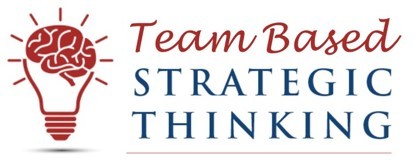Deep Down You Want Your People
To Act Like Owners Of The Business, Part I (#3 Article)
Policy and procedures are for a complicated world that can be made more efficient by proceduralising everything, where command and control is the most efficient organisation structure.
However as we move deeper into the 21st century we know that this in fact will be the “chains” of command instead of the concept of “chain of command”.
It should come as a little surprise that when organisations face a VUCA (Volatile, Uncertain, Complex, and Ambiguous) environment, they install matrix organisations. This can be very disconcerting for those in the organisation who want to know who their boss is and absolutely liberating for those with a growth mindset who want to take ownership and accountability for their actions.
One of the classic issues with command and control hierarchies is that organisational decision-making is driven to the top, so ultimately no one ends up accountable. This is evidenced by documents that are called names like “delegations of authority”.
In political subversive organisations, a smart operator will defer all important decisions on to their boss, who in turn will defer to their boss. You will know this as “cover your ass” syndrome. No one is ever to blame!
The typical organisational response to this is to install a performance review process that is intended to make people accountable and drive business performance. It in fact does exactly the opposite in a VUCA world.
There is no wonder so many large corporations like Cisco, Adobe, and Deloitte are doing away with yearly objective setting and forced ranking review.
The main issue is that so much time and effort is put into this process for little or no reward. It is counterproductive in fostering a culture of collaboration and innovation. You are actually setting your people up in competition with each other!
You divert their focus and attention away from value-creating activities to fighting for performance ranking that might give them a pay rise improvement of a couple of percent at best.
People who think like owners don’t do that.
They are not motivated by the financial reward per se but as Dan Pink refers to in his book Drive (Random House 2009), a potent combination of autonomy, mastery, and purpose drives the intrinsic motivation of your workers in the conceptual age. The carrot-and-stick approach (i.e. performance review) does not work.
Pink’s research showed that the more money you paid someone the less they performed. This intrinsic approach to motivation allows them to think like owners and adopt a growth mindset.
The concept of a growth mindset has become quite popular in recent times. Dr Carol Dweck (HBR Jan 2016) briefly sums up the findings as such: Individuals who believe their talents can be developed (through hard work, good strategies, and input from others) have a growth mindset.
They tend to achieve more than those with a more fixed mindset (those who believe their talents are innate gifts). This is because they worry less about looking smart and they put more energy into learning.
When entire companies embrace a growth mindset, their employees report feeling far more empowered and committed; they also receive far greater organisational support for collaboration and innovation. In contrast, people at primarily fixed mindset companies report more of only one thing: Cheating and deception among employees, presumably to gain an advantage in the talent race.
I’m sorry to hear if some of this is resonating with what you know to be true in your organisation. High-performance teams only exist when individual performers have each other’s backs. It can’t exist when they are putting knives in each other’s backs.

